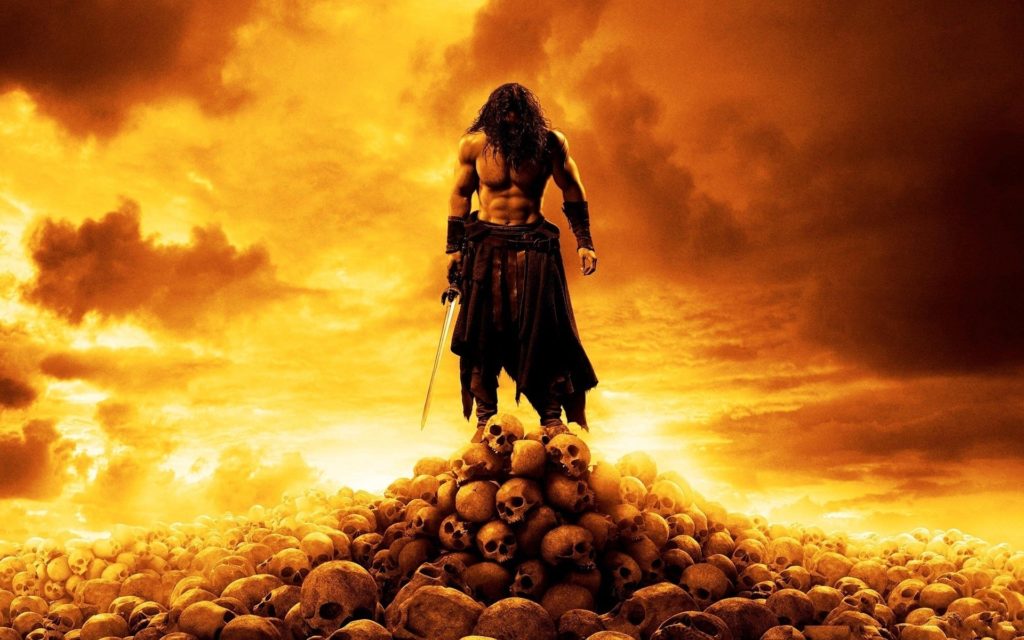Body Count Vs. Human Cost
Violence is everywhere in our entertainment. Books, movies, TV, music, video games… I would suspect that more time is devoted to acts of violence in entertainment than any other element (sex, technology, romance, world-building, etc.). Like most guys, I consume a lot of violent entertainment. I love action movies and the TV shows I watch usually incorporate violence (though the recent Showtime series Billions blew me away and there were only a few punches thrown in that show). I don’t play video games, but the revamped Doom looks unbelievable.
The books that I write also have high death tolls. My Age of Apollyon Trilogy has fanatical religious massacres and terrorist bombings. The gene-spliced monstrosities in Cyn get splattered all over the place. Hardly anyone survives my oil rig disaster Beast, and my forthcoming book Nikolai the Penitent is a plague-ridden slaughterhouse. Most of my short stories are similarly bloody. In fact, the only book of mine that doesn’t stack bodies is Indelible, a mainstream contemporary fiction story where surprisingly no one dies.
I don’t take sadistic pleasure in watching people get mutilated and blown apart, and I have no stomach for horror violence and “torture porn.” Bullet to the head – fine. Pulling out someone’s entrails on a crank – no thanks. My favorite ghost movie, The Others, has no on-screen violence at all. But if it’s an action, fantasy, or sci-fi movie (or TV show or book), I usually expect a high body count.

Copyright Lionsgate Films
In the realm of fantasy, this is especially prevalent, since war is a common element in these sorts of stories. This reflects real life during ancient times. I’ve been watching a new show on the History Channel called Barbarians Rising, and I am blown away at the sheer numbers that fall in single battles – 40,000 at this battle, 50,000 at that battle. I can’t even comprehend what that must look like, even though I have seen it on screen many times (Braveheart, Kingdom of Heaven, and many more).
I’ve never been in the midst of a slaughter, and I would imagine that you haven’t either. Even modern warfare doesn’t see the kinds of numbers that used to be common in ancient times. We don’t see legions of soldiers clash in the battlefield; we have urban warfare, cruise missiles, drone strikes, and snipers. Wars and genocide happens around the world every day, but we rarely hear of casualties numbering more than one hundred.
The massacre at the nightclub in Orlando, FL this past weekend resulted in the deaths of fifty people, including the gunman. Fifty dead would be a trifle if it were a battle in an epic fantasy story, but the dead (and the living) in fiction are not real. They don’t have (real) families or friends; they are creations of the writer’s mind. When they die, their deaths resonate only in the story. More often than not, their deaths are not a surprise; in fact, we the audience expect people to die. Would we watch a medieval movie with two armies facing each other that ultimately disperse because their leaders came to terms? No, we want to see the charging wave of swords and shields, to hear the crash and clang of metal and the snap of bones, to see blood arc through the air as men roar like beasts. Our eyes grow wide and an idiotic grin spreads across our face as we think, Awesome…
Real-life slaughter is anything but entertaining. Unless violence and death happen to the main characters in a story, we rarely see and feel the human cost of those deaths, of the families left behind, of the children now orphaned, of the villages and kingdoms without their leaders, of the friends and lovers whose hearts ache for those they can never embrace again. But that is what we see in the news, and that is what endures long after the sirens fade.
I do not advocate scrubbing our entertainment clean. I don’t care what sick psychopaths do; I’m still going to watch and read and write about violence. Yet in the constant surge of fictional bloodshed, it’s easy to forget that this happens to real people as well, and it’s anything but awesome.







































Not bad, dude.